Foreword
2022 brought armed conflict to Europe with Russian military forces entering Ukraine in February. As the world watched in horror the atrocities that unfolded, reports of sexual violence began to emerge, reminding us how this violation of international humanitarian and human rights law continues to occur in all situations of armed conflict.
The UN Independent International Commission of Inquiry on Ukraine has documented that Russian forces have committed rape and sexual and gender-based violence and threats of such violence in two key contexts: during incursions into the homes of the victims and in detention facilities operated by Russian authorities. In situations of deprivation of liberty, sexual violence was perpetrated mostly against men, both civilians and those who were prisoners of war.
This once again serves as an urgent reminder of how situations of detention and deprivation of liberty generate profound risks for men and boys, not only because they constitute the larger numbers of those detained in armed conflict but also because of the manner in which gender and power intersect with other factors such as ethnicity, nationality, sexual orientation and gender identity to create specific vulnerabilities to sexual violence.
During 2022, we dug deeper into the issue of how sexual violence against boys can be prevented and better responded to in detention settings. As implementing partners of the UN Office of the Special Representative of the Secretary-General on Children and Armed Conflict, we set about documenting what is known about CRSV against boys in detention settings and consulting with child rights/protection and other stakeholders on how to strengthen prevention and other responses.
Ongoing conflicts, including in Ukraine, demonstrated how work to prevent sexual violence remains a slow and drawn out process. In parallel, therefore, we escalated our work on strengthening access to justice for victims of sexual violence, specifically in the case of Colombia where we submitted a joint report to the Special Jurisdiction for Peace which included 81 cases of CRSV against men and boys. Of the more than 120 reports submitted to the Jurisdiction on sexual violence, this was the only one which focused on CRSV against these populations. We also continued to contribute technical support to various transitional justice bodies in the country to build capacity on the issue of male directed sexual violence.
Through our work it has become clear to us that access to healthcare for male victims/survivors is critical to their recovery and rehabilitation. However, obtaining such access remains a tough challenge for male victims/survivors because of multiple, interconnecting and mutually reinforcing factors. To understand the barriers that men and boys face in accessing healthcare and to ensure that our advocacy and action is informed by evidence, we launched our research on this issue in Colombia and the Central African Republic. Despite the security and other challenges and the rolling back of women’s rights, we also continued to deliver trainings to healthcare providers in Afghanistan.
None of this work would have been possible without the trust that victims/survivors and our partner organisations have placed in us. I am grateful to my team for their unstinting commitment to ensuring that we do justice to those who have put their confidence in us. Finally, continuing our work would have been impossible without the generosity of our donors whose support remains critical to our mission.
Charu Hogg
Executive Director
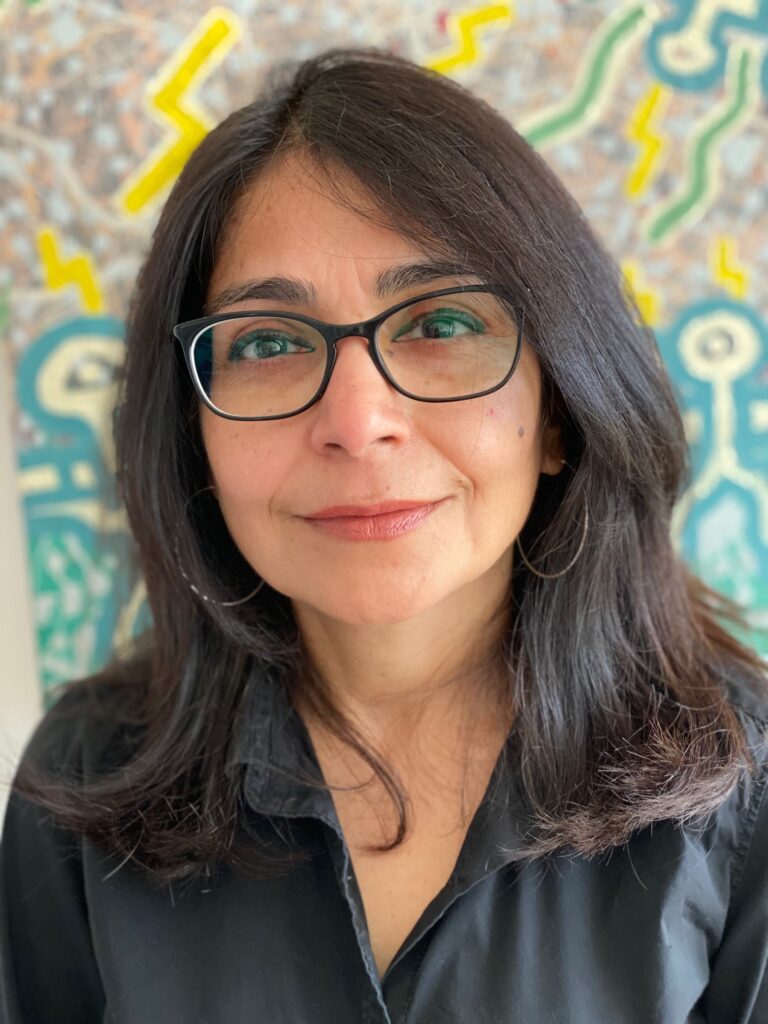
About All Survivors Project (ASP)
ASP’s Vision
A world where everyone is protected against conflict-related sexual violence (CRSV) and all victims/survivors have access to appropriate and timely care, support and justice.
ASP’s Mission
Support global efforts to eradicate CRSV and strengthen national and international responses to it. We will do this through research and action on CRSV against men and boys and/including those with diverse sexual orientation, gender identity, gender expression and/or sex characteristics (SOGIESC).
ASP’s Values
We are:
- Committed to upholding human rights: ASP’s work is guided by international human rights and humanitarian norms and standards; the best interests, dignity and safety of all victims/survivors of CRSV; and principles of non-discrimination.
- Survivor-centred: ASP prioritises the interests and perspectives of victims/survivors, working directly with them wherever possible to inform our research and action and to ensure that their needs and wishes guide efforts to end and respond to CRSV.
- Ethical and accountable: ASP upholds ethical approaches in its research, advocacy and other activities and is committed to being accountable, including to the victims/survivors and partners with whom it works, and to women’s rights organisations working to respond to CRSV against women and girls.
- Independent and impartial: To protect our independence, ASP ensures that all of our funding is consistent with our mission and values. We preserve our impartiality and do not take sides in armed conflicts.
Programme Activities and Highlights
In 2022, we remained focused on achieving our three core objectives under ASP’s strategic plan (2021-2024) :
- Prevention: To strengthen measures to prevent CRSV against men and boys.
- Justice: To improve access to justice for male victims/survivors of CRSV.
- Healthcare: To improve availability of and access to timely, quality, survivor-centred medical care and mental health and psychosocial support (MHPSS) for male victims/survivors of CRSV.
The focus of our research, advocacy and capacity building remained on men and boys, including those with diverse SOGIESC, but was embedded in the broader, critical endeavour of preventing CRSV against women and girls and all LGBTI+ people, and of ensuring that all survivors receive the care and support that they require.
Our work continued to show that, although women and girls are disproportionality affected by CRSV, men and boys can also be at significant risk in conflict and post-conflict settings and that CRSV against them is often rooted in the same structural inequalities and discrimination that underlie CRSV against women and girls. Our work was also informed by the way in which different, intersecting identity characteristics including age, disability, ethnicity, religion, political affiliation and migration status can contribute to vulnerability, result in differing harms and affect access to appropriate care and services.
Prevention
Recognition of the risks to and vulnerabilities of men and boys to CRSV is essential if it is to be prevented. ASP therefore focused on highlighting the issues and encouraging all those involved in responding to factor them into their work.
Exposing the increased risks of CRSV to boys and LGBTI+ people under the Taliban
In the aftermath of the Taliban’s takeover in Afghanistan in 2021 there was rightly enormous concern about the fate of women and girls. However, based on our previous work in Afghanistan we knew that CRSV against young boys and male adolescents was already quite widespread, and that the risk to them was also likely to have increased in the context of the human rights and humanitarian crisis precipitated by the takeover.
Although the security situation made field research impossible, we were able to work with our contacts to gather information from the network of national child rights/protection experts who had remained in the country. They helped us to build a picture of a situation in which growing numbers of boys were exposed to the risk of CRSV including as a result of increased levels of child labour; a new wave of military recruitment and use of children by Taliban forces; the movement of unaccompanied boys across borders; and the arbitrary detention of boys in lieu of parents who worked for the former administration and security forces.
In our briefing paper, Conflict-related sexual violence: New dangers facing men and boys in Afghanistan, we also highlighted the way in which the Taliban’s intolerance of gender non-conformity had deepened the dangers faced by the LGBTI+ community, as well as the devastating impact of the almost complete collapse of medical and mental health and psychosocial services (MHPSS) for victims/survivors of CRSV.
The briefing was launched at an event hosted by the Permanent Mission of Canada to the United Nations in New York in January 2022. We urged the international community to ensure that its responses to the situation in Afghanistan take account of the differing gendered impacts of the multi-dimensional crisis and address the heightened vulnerabilities of men and boys to CRSV, as well as of women and girls. We also called for the rapid resumption of humanitarian aid and funding in support of vital services including medical and MHPSS for vulnerable Afghan citizens, including victims/survivors of CRSV.
Focusing attention on the risk of CRSV in detention settings
ASP has consistently pointed to situations of deprivation of liberty as among the most, if not the highest risk situation for men and boys – indeed rape and other forms of sexual violence against males are reported more frequently in situations of deprivation of liberty than in most other settings. However, the full extent of the problem is not known and responses remain inadequate.
In the context of our new partnership with the Office of the Special Representative of the Secretary-General for Children and Armed Conflict (OSRSG CAAC) (see below), we set about documenting what is known about CRSV against boys in detention settings and consulting with child rights/protection and other stakeholders on how to strengthen prevention and other responses.
This research, published by the OSRSG CAAC in December 2022, set out practical recommendations on how to overcome the challenges involved in gathering data on CRSV in detention settings and called for better mapping of potential risks associated with detention by state security forces or non-state armed groups and for greater awareness of gender and other intersectional factors that result in boys being arbitrarily detained on suspicion of being or associating with “terrorists” or “violent extremists”. There were also calls for stronger efforts to tackle other root causes of child detention in armed conflict, including the military recruitment and use of children, and for increased pressure on detaining authorities to comply with international standards.
Separately, we also worked with UN Member States at the 50th session of the UN Human Rights Council to ensure that CRSV against men and boys, including male detainees, in Syria featured in the resolution on the situation of human rights in the Syrian Arab Republic. We were pleased to see sexual and gender-based violence against male detainees were explicitly acknowledged and condemned in the final resolution, as well as the inclusion of recommendations for a coordinated and survivor-centred approaches to preventing such violence and abuse, for gender-sensitive, non-discriminatory access to health services, protection and other support to victim/survivors and for accountability.
Exploring the relationship between CRSV and human trafficking
Alongside the Liechtenstein Institute on Self-Determination at Princeton University, the Finance Against Slavery and Trafficking (FAST) Initiative at UN University-Center for Policy Research, and others[1], ASP was proud to co-host a one-day workshop on 9 May on “The Nexus between Conflict-related Sexual Violence against Men, Boys and LGBTI+ Persons and Human Trafficking”. Attended by 36 experts from the UN, INGOs, academia and elsewhere, the aim of the event was to identify legal, policy, and programmatic gaps in ensuring gender-inclusive responses for trafficked victims/survivors of CRSV and to determine where follow-up research and action are needed.
A workshop report was published in June and resulted in a collaboration between ASP and FAST to develop a research project to assess financial vulnerabilities for men affected by CRSV and trafficking in conflict and other crisis settings with the aim of strengthening advocacy for the inclusion of this population in protection measures. The report will be finalised in 2024.
Building the capacity of security actors to prevent and respond to CRSV against men and boys
ASP continued its long-standing engagement with NATO. We were again invited to participate in NATO’s Human Security Training week which took place in November in Romania and at which we delivered sessions to military officials, NATO technical leads and civil society organisations on CRSV against men and boys.
We were also pleased to be invited to a UK Ministry of Defence (MoD)-hosted roundtable on preventing and responding to CRSV. Attended by over 20 representatives from the MoD and experts from civil society, the event was intended to contribute to MoD efforts to strengthen its understanding of and responses to CRSV. ASP was invited in its capacity as Steering Board member of the Preventing Sexual Violence in Conflict Initiative (PSVI) team and to shed light on gender-specific vulnerabilities of men and boys and sensitise attendees about this particular risk.
Justice
The pace towards achieving justice for victims/survivors of CRSV remains painfully slow and the victimisation of men and boys continues to be largely overlooked in judicial and non-judicial justice processes alike. ASP therefore continued to support global efforts to end impunity for CRSV and to achieve redress for all victims/survivors, while focusing specifically on ensuring that CRSV against men and boys is addressed in justice processes. We were pleased to see this work beginning to show signs of progress in 2022.
Recognition of CRSV against men and boys by Colombia’s Truth Commission
In its landmark final report, issued in August 2022, Colombia’s Truth Commission (the Commission for the Clarification of Truth, Coexistence, and Non-Repetition), to which ASP had provided written and oral briefings, included several cases of CRSV against men belonging to ethnic communities and those with diverse SOGIESC. Although we would have liked to have seen more attention on heterosexual cisgender males who, according to our research have suffered CRSV in significant numbers in Colombia, the Truth Commission’s report did reference ASP’s research on the issue and noted that other cases had been documented by ASP and emphasised the importance of advancing the investigation and visibility of this violence and the psychosocial care for the victims.[2]
Moving towards criminal investigation and prosecution of CRSV against men and boys by Colombia’s Special Jurisdiction for Peace (SJP)
We continued to work with national organisations, Red de Mujeres Víctimas y Profesionales (Red de Mujeres) and the two Focal Groups of Male Victims of Sexual Violence (Focal Groups), to ensure the effective investigation and prosecution of CRSV, including against men and boys, by the judicial branch of Colombia’s Comprehensive System of Truth, Justice, Reparation and Non-Repetition.[3]
In March, ASP, Red de Mujeres and the Focal Groups, with technical support from Justice Rapid Response, filed a joint submission to the SJP documenting 75 cases of CRSV against men and boys that occurred between 1989 and 2015 in the context of Colombia’s long-running armed conflict – with six additional cases submitted in December. Our analysis of the cases found reasonable grounds to believe that the Revolutionary Armed Forces of Colombia (FARC-EP), and the United Self-Defence Forces of Colombia (AUC) in collusion with state security forces, used sexual violence against men and boys as part of their strategies of domination and control of the civilian population and territories, and that the documented cases may have amounted to torture.
While many submissions on sexual violence had already been made to the SJP, ours remains the only one focusing exclusively on CRSV against men and boys. We launched a public version of the submission, Laying Down Arms, Sexual Violence Against Men and Boys in the Context of Armed Conflict in Colombia, on 19 June on the occasion of the International Day for the Elimination of Sexual Violence in Conflict.
We also joined forces with national and international women’s and LGBTI+ rights groups in a joint statement publicly calling on the SJP to open a dedicated case on CRSV. Although it had not done so by the end of the year, in June the SJP announced plans to open a “macro-case” on sexual violence in the near future.
Enhancing the capacity of the SJP to pursue gender-inclusive investigations and prosecutions of CRSV
We engaged directly with the SJP to enhance awareness among and build capacity of its staff to address male and LGBTI+ people targeted by CRSV. In addition to ongoing dialogue with SJP representatives, we delivered a one-day workshop in March, together with LGBTI+ rights organisation, Colombia Diversa and representatives of the Focal Groups, to the SJP’s Unit of Investigation and Accusation. ASP’s input at the workshop on CRSV against men, boys and LGBTI+ people included lessons learned from other contexts about patterns of and harms resulting from CRSV against men and boys, and on international standards and jurisprudence relating to the investigation and prosecution of this crime.
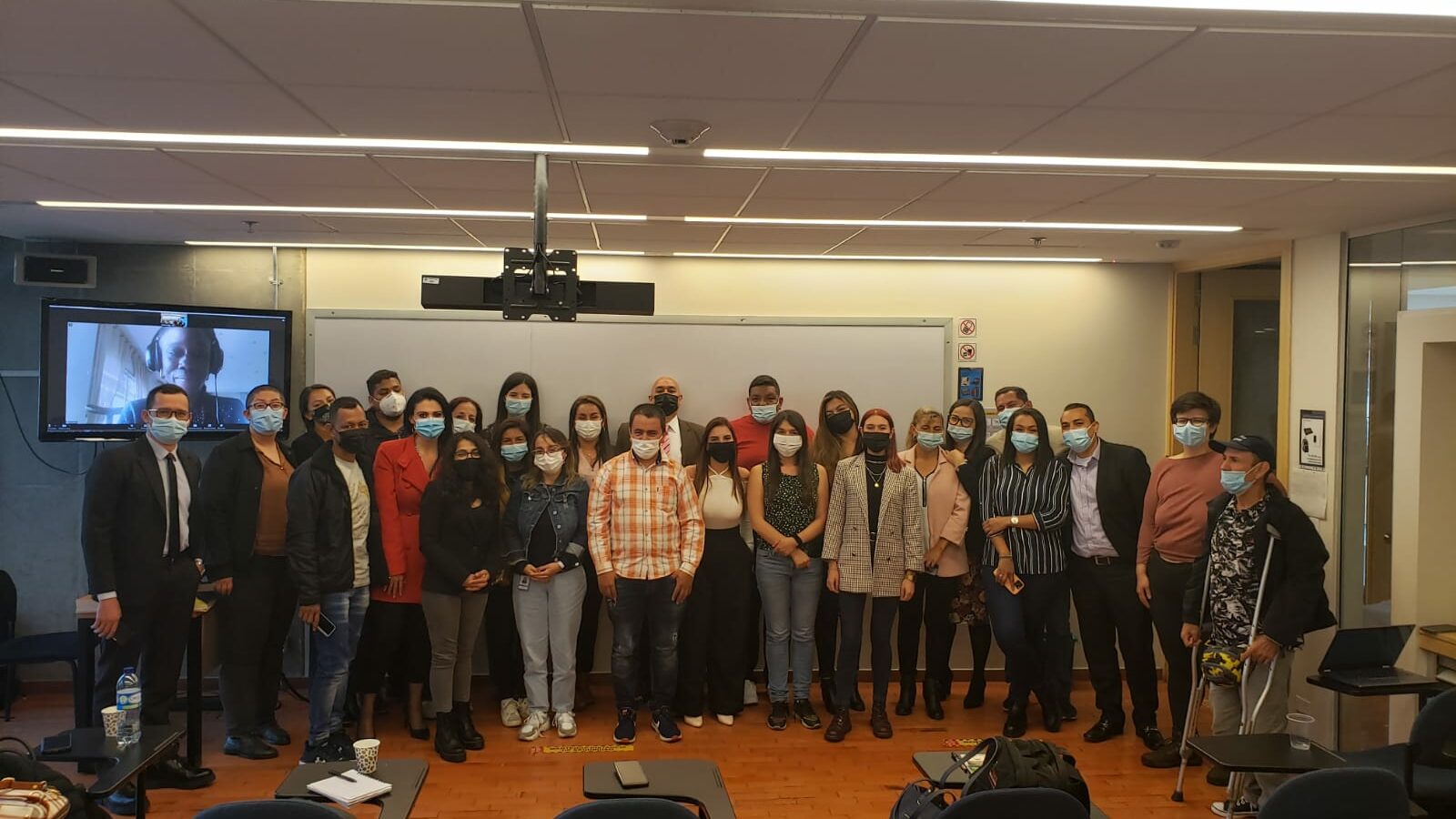
Supporting the participation of male victims/survivors in justice processes in Colombia
In the last quarter of 2022, we worked with the Focal Groups, Red de Mujeres and Justice Rapid Response to ensure that the male victims whose cases were submitted to the Tribunal have effective access to justice. To this end we organised meetings in Bogota with these actors to discuss and agree on next steps including to begin the process of preparation of individual “accreditation” requests to the tribunal for these victims.
New engagement with the International Criminal Court (ICC) on CRSV against men and boys
We were honoured to be invited by the Prosecutor of the ICC, Karim A. A. Khan, to discuss potential areas of collaboration with the ICC’s gender and children’s teams. At a meeting in August, we presented our work on survivor-centred healthcare in Afghanistan and Central African Republic (CAR) and on justice in Colombia. Subsequent meetings have been organised with the ICC’s Colombia team and with the team leading on Afghanistan to discuss ways in which ASP’s research and findings could support the ICC’s work.
We were also pleased to be able to facilitate the participation of a representative of our national partner in Afghanistan in the Office of the Prosecutor’s thematic roundtable with NGOs on “crimes against children” in which our partner was able to share their experience of working with child victims/survivors of serious crimes under international law including sexual violence, trafficking and other conflict-related crimes.
Also in November, ASP provided written comments on the ICC’s draft policy on the Crime of Gender Persecution. Although not all our recommendations were addressed in the final policy document, published in December 2022, we were particularly pleased to see explicit inclusion of men and boys as among the possible victims of gender persecution and recognition of the fact that misconceptions that men and boys are not affected by CRSV can hide the extent of this crime.
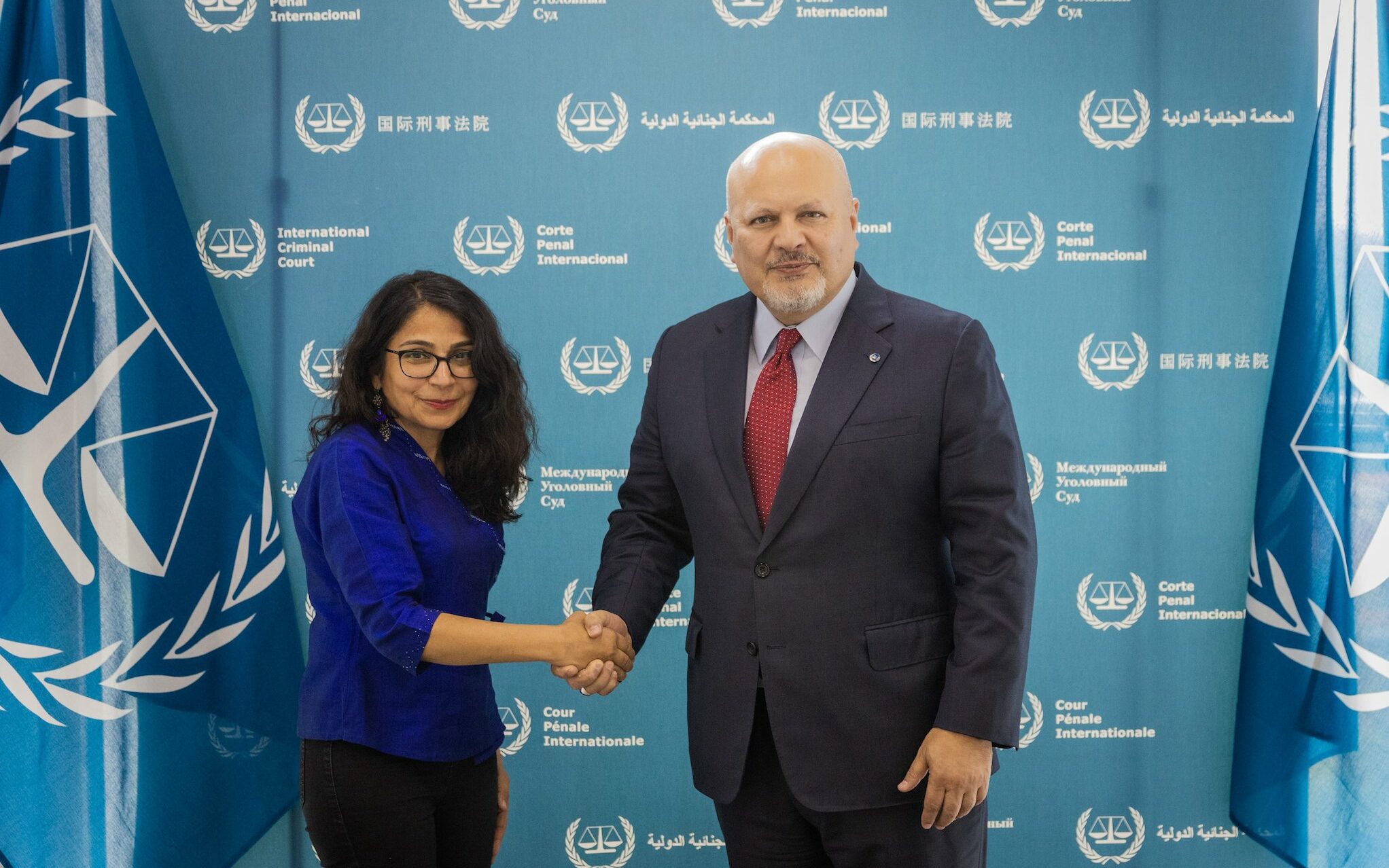
Healthcare
We continued our multi-country, multi-year project on survivor-centred healthcare in 2022, building on previous research and capacity building in Afghanistan and taking forward new research in CAR and Colombia aimed at increasing understanding of the needs and wishes of male victims/survivors and ensuring that these are addressed in medical and MHPSS responses.
Building the capacity of healthcare workers in Afghanistan to respond to male victims/survivors
Despite the challenges of operating in the severely restricted space for such work in Afghanistan, we were able to take forward our capacity building for health workers on survivor-centred healthcare for men and boys. We worked with our national partner, Youth Health and Development Organisation (YHDO) to revise training tools that we had piloted in 2021 and to obtain permission from the de facto authorities to roll them out. Between October and December 2022, YHDO and ASP were able to jointly run three trainings with 20 healthcare providers each in Balkh, Herat and Kandahar provinces covering a total of 60 healthcare providers who included doctors, nurses, and health technicians from health centres and hospitals run by the Ministry of Public Health. The three- to five-day trainings were aimed at building the capacity of healthcare providers in Afghanistan on the issue of sexual violence against men and boys by addressing their own biases and the stigma that accompanies this sensitive issue. The trainings are part of a multi-year project, and we anticipate, funding permitting, to be able to continue the trainings for the next few years.
New research on survivor-centred health in CAR and Colombia
Using the research model that we first piloted in Afghanistan, we carried out research in Colombia aimed atunderstanding the healthcare needs of male victims/survivors of CRSV, identifying barriers they face in accessing timely, quality, survivor-centred healthcare and exploring how this situation could be improved. With the support of national organisations, Red de Mujeres and the Focal Groups, we interviewed and ran workshops with close to 60 key stakeholders and male victims/survivors of CRSV and began the process of analysing research findings.
In CAR we obtained ethics approval for our research from the University of Bangui’s Ethical and Scientific Committee and from our national partner’s Médecins Sans Frontières (MSF) Ethical Review Board. We also began training our national data collectors on methodologies and tools for research that will be carried out in 2023. In Colombia, we obtained ethics approval from Profamilia’s Research Ethics Committee.
Sharing learnings on survivor-centred healthcare for male victims/survivors
We were delighted by the high level of interest among policy-makers, practitioners and academics in our work on survivor-centred healthcare, and were pleased to share our experience of conducting the research and of our findings and recommendations via various different events and forums including:
- An online brown bag event on 6 April, jointly hosted in New York with UN Action Against Sexual Violence in Conflict, on developing survivor-centred responses for males and persons identifying with diverse SOGIESC, at which we presented our findings and recommendations from our Afghanistan research to the representatives of the 24 UN entities that make up UN Action’s membership.
- In August, the international journal, Child Abuse & Neglect, published the findings of our Afghanistan research in an article “Enhancing a survivor-centred approach to healthcare provision in Afghanistan: Understanding and addressing the barriers faced by male victims/survivors of sexual violence.”
- In October, we presented preliminary findings from our Colombia research at a “Symposium on Conflict-related Sexual Violence Against Men and Boys” organised by the University of Leipzig. The event provided a forum for researchers and practitioners from different disciplines to exchange experiences of and best practice on researching male directed CRSV. We used this opportunity to share our research methodology and early analysis of the multiple structural, organisational, community and individual-level barriers to accessing healthcare faced by all CRSV victims/survivors in Colombia, and of the gender-specific obstacles faced by men and boys there.
- On 4 November, we participated in a webinar on emerging practice in the field of survivor-centred healthcare responses for male victims/survivors of CRSV hosted by the Regional GBV Working Group for East and Southern Africa which brings together UN agencies, NGOs and others working on GBV in humanitarian emergencies in the region. ASP presented its findings and recommendations from Afghanistan.
Boys/children
We were delighted to begin a dedicated programme of work on CRSV against boys in partnership with the OSRSG CAAC. In 2022, we focused on two contexts in which children are highly vulnerable to CRSV – in situations of deprivation of liberty and in the context of their association with armed forces or armed groups – carrying out research and engaging in dialogue with child rights/protection stakeholders to better understand the risks to and vulnerabilities of boys and to identify how responses could be strengthened.
Research exposes information gaps on and lack of responses on CRSV against boys
As noted above, we undertook desk-based research to analyse existing documentation on CRSV against conflict-related boy detainees and to seek the views of child rights/protection experts on how to counter these risks. This project built upon previous work by ASP on CRSV against men and boys in detention, including its 2020 Principles on the Prevention of Conflict-Related Sexual Violence in Detention Settings, highlighting a context in which boys are particularly vulnerable to CRSV, because of the sheer numbers that are detained because of their actual or alleged association with parties to armed conflict or on national security-related grounds.
In parallel, we designed and implemented research to assess whether and how the possibility that boys associated with armed groups in CAR may have been subjected to CRSV is being addressed in reintegration programmes for children associated with armed forces or armed groups (CAAFAG).
With the support of our national partner in CAR, Plan International, we interviewed policy experts and practitioners and held reflection workshops with a wide range of actors in Bangui, Bria and Zemio involved in implementing and supporting CAAFAG reintegration programmes.[4] We found that, although CRSV against boy CAAFAG has not been documented to date, research participants believed it to be widespread. They told us that CAAFAG reintegration programmes do not adequately serve girl victims/survivors of CRSV, but that the specialised support needed to overcome CRSV is often non-existent for boys. There was consensus that far greater attention is needed to documenting the experience of boys, challenging taboos surrounding male directed sexual violence and encouraging boys to come forward for support, and that reintegration support for all victims/survivors of CRSV needs to be strengthened.
We were proud that our research findings on CRSV against boy detainees and responses to boy victims/survivors in CAAFAG reintegration programmes were published by OSRSG CAAC in December. Ahead of this we co-facilitated a two-day workshop, “Conflict-Related Sexual Violence against Boys: From Recognition to Response” with OSRSG CAAC and the Liechtenstein Institute on Self-Determination (LISD) at Princeton University to present and discuss the research findings with policy-makers, UN and I/NGO practitioners, donors and other experts, and consider how they could be taken forward. In addition, we also returned with our CAR research findings and conducted a validation workshop in November to ensure that our analysis and recommendations received the agreement of national partners and key stakeholders.
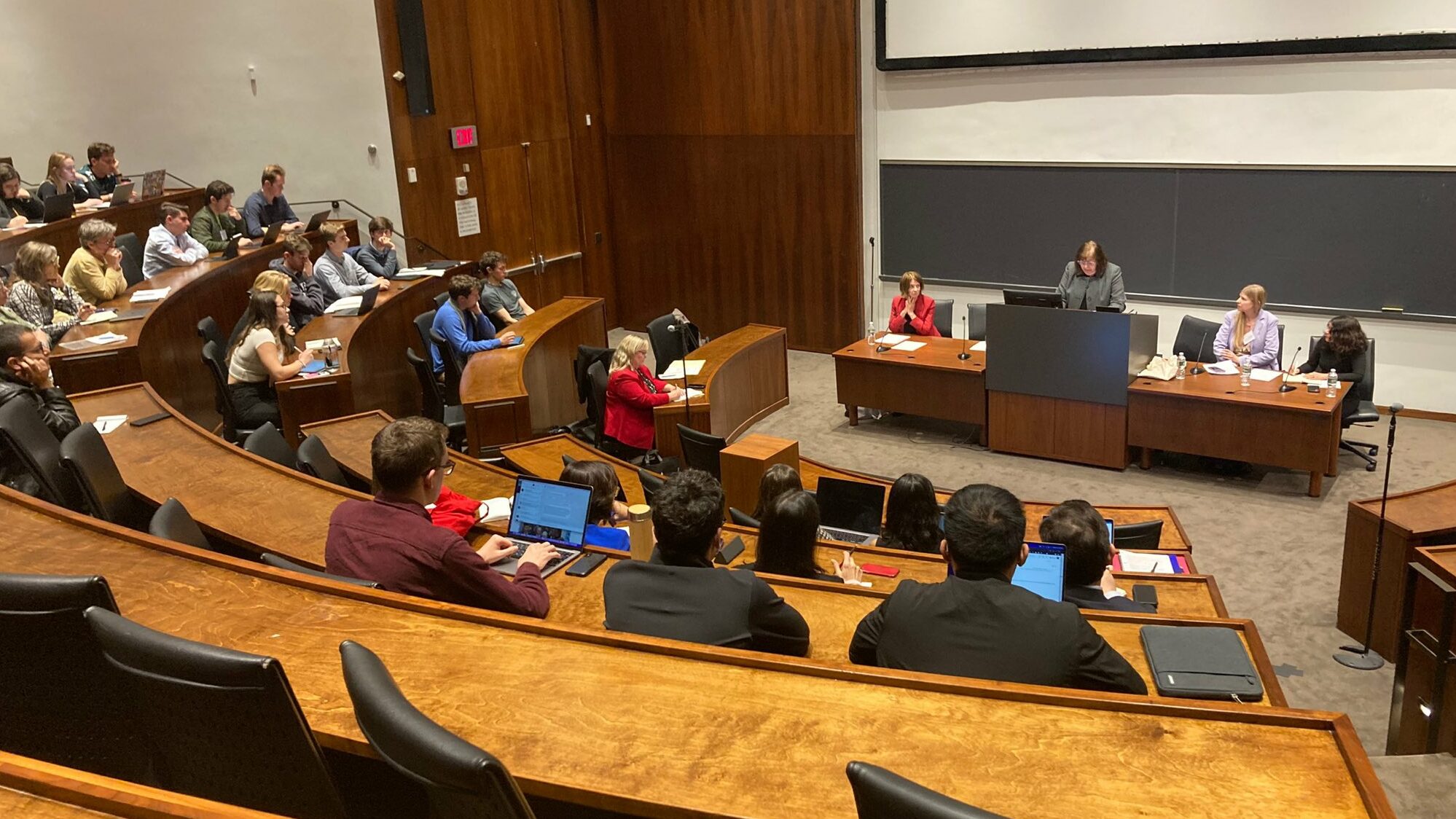
Mainstreaming CRSV against boys into UN Security Council’s work on CAAC
As part of our ongoing work to mainstream CRSV into key agendas, we published a briefing for UN Member States in advance of the Security Council’s Annual Debate on Children and Armed Conflict to encourage their support for enhanced monitoring and reporting of sexual violence against all children in situations of armed conflict, improve understandings of how gender and other identity characteristics contribute to risks and vulnerabilities, and ensure more resources for preventive and response measures, including medical care and MHPSS for child victims/survivors and for perpetrators to be brought to justice.
Expert engagement and communications
ASP continued its engagement with key actors and participated in forums and events on CRSV and related issues, providing expert analysis and technical guidance on responding to CRSV against men and boys, including those with diverse SOGIESC.
- As a Steering Board Member of the UK Government’s PSVI programme, we provided input on a proposed international convention on CRSV and shared lessons learned from our work in Colombia and elsewhere. In May, we took part in the Wilton Park conference on “Strengthening the International Response to Conflict-related Sexual Violence” along with 50 other UN, government, civil society and academic experts, and victims/survivors, to share lessons learned and explore ways in which responses could be strengthened. This was one of a number of Foreign, Commonwealth and Development Office (FCDO)-facilitated discussions in the run up to the November International Ministerial PSVI Conference that took place in London in November to mark the 10thanniversary of this important initiative. We were pleased to attend the conference and to have have co-facilitated with the UK-based INGO, Legal Action Worldwide (LAW) a session on access to justice and health for LGBTI survivors of sexual violence, titled “Overlooked and underserved: Improving responses to conflict related sexual and gender-based violence against LGBTQI+ people”.
- As a member of the Task Team on Male Survivors of Sexual Violence of the Interagency Working Group on Reproductive Health in Crises we supported the development and implementation of its workplans, and provided input into draft guidelines and other documents aimed at improving the quality, availability, access, and utilization of priority minimum and comprehensive services for male survivors of sexual violence in humanitarian settings, including those with diverse SOGIESEC and to ensure that these efforts complement and/or reinforce services for female survivors.
We engaged with other key actors and sought to communicate our work to ever wider audiences.
- In April we launched our new website and during the year we produced five episodes of our podcast, In the Centre, in which we engaged policy-makers, practitioners and other experts in dialogue on a wide range of themes including access to survivor-centred healthcare and to justice for male victims/survivors; CRSV against children in the context of their association with armed forces or armed groups; and the effectiveness of UN mechanisms in addressing CRSV.
- In December, we welcomed the invitation from the Norwegian Ministry of Foreign Affairs to meet with them and international humanitarian actors, including the Norwegian Refugee Council, the Peace Research Institute Oslo (PRIO), and the Norwegian Red Cross to explore synergies and potential collaborations on CRSV and as an opportunity to discuss our work on men and boys and to build closer relationships with implementing agencies.
Summary of key activities and outputs in 2022
25 January: Briefing
Conflict-related sexual violence: New Dangers Facing Men and Boys in Afghanistan
20 January: Podcast
“In the Centre” podcast: Episode 2: Exploring Access to Health for Men, Boys and/including LGBTI+ Survivors of Sexual Violence in Conflict and Displacement Settings
17 February: Podcast
“In the Centre” podcast: Episode 3: Exploring Access to Justice for Male Survivors of Conflict-related Sexual Violence
17 March: Podcast
“In the Centre” podcast: Episode 4: Exploring the Impact of UN Mechanisms in Addressing Conflict-related Sexual Violence against LGBTI+ Populations
March: Event
ASP, together with Colombia Diversa and representatives of the Focal Groups, delivered a one-day workshop to the SJP’s Unit of Investigation and Accusation (UIA).
17 March: Statement
22 March: Report
ASP submitted confidential report to the JEP, entitled Sexual Violence against Men and Boys in the Context of the Armed Conflict in Colombia.
April: Website
ASP redesigned and republished our website allsurvivorsproject.org.
21 April: Podcast
“In the Centre” podcast: Episodio 5: Informe a la Jurisdicción Especial para la Paz sobre Violencia sexual contra Hombres y Niños en el Conflicto Armado en Colombia
May: Event
ASP participated in FCDO organised event in Wilton Park: Strengthening international response to conflict-related sexual violence (CRSV).
9 May: Event
ASP co-hosted a workshop with Permanent Mission of Austria to the United Nations, New York; Permanent Mission of Liechtenstein; FAST Initiative; LISD Princeton; Ludwig Boltzmann Institute of Fundamental and Human Rights at the University of Vienna. The topic discussed was the Nexus between Conflict-Related Sexual Violence Against Men, Boys, and LGBTQI+ Persons and Human Trafficking.
19 May: Podcast
“In the Centre” podcast: Episode 6: Exploring harms against children in the context of their involvement in armed conflict
19 June: Report
1 July: Submission
Briefing in advance of the UN Security Council Annual Debate on Children and Armed Conflict
August: Event
ASP invited to meet with the Prosecutor of the ICC Karim Khan in the Hague and with the gender team to discuss areas of collaboration.
August: Research article
29 September: Event
ASP invited to a civil society and expert roundtable event on identifying the risks, challenges and opportunities for the Ministry of Defence in preventing and responding to Conflict-Related Sexual Violence (CRSV).
6-7 October: Event
ASP presented on Colombia in a panel discussion at a symposium on CRSV against men and boys in Hannover organised by the University of Leipzig.
2-3 November: Event
ASP co-hosted a workshop at Princeton University with the UN Office of the Special Representative of the Secretary-General for Children and Armed Conflict, and the Liechtenstein Institute on Self-Determination at Princeton University, on Conflict-Related Sexual Violence: from Recognition to Response.
4 November: Event
ASP presented at an “Emerging Practice Webinar on Survivor-centred health responses for male survivors and SOGIESC: Learning from a multi-method study” organised on behalf of the Intersectionality pillar of the East and Southern Africa Regional GBV Working Group.
8-10 November: Training
ASP presented its work on CRSV against men and boys at “Human Security Training” organised by NATO in Sibiu, Romania.
28-29 November: Event
ASP co-organised panel at the UK FCDO’s Preventing Sexual Violence Initiative. The panel organised with Legal Action Worldwide focuses on sexual violence against people with diverse sexual orientation and gender identity: “Overlooked and underserved: Improving responses to conflict related sexual and gender-based violence against LGBTQI+ people”.
12 December: Report
12 December: Briefing
23 December: Policy paper
Organisational Development
ASP continued to strengthen its governance and expanded its team with the addition of new Board members:
Barbara Pirto, Director of Finance with Physicians for Human Rights and former Global Director of Finance with Human Rights Watch (HRW) joined us as Treasurer to the Liechtenstein Board of Trustees.
Sahar Khalil, an operations professional with expertise in change management, operational planning, strategy development, finance, monitoring and evaluation, and risk management joined our UK Board of Trustees. Sahar currently works as the Global Project Manager at HRW where she oversees operations work in the Americas region and manages change-related projects.
Gary Barker joined our Board of Advisors. He is President, CEO and co-founder of Equimundo Center for Masculinities and Social Justice (formerly Promundo-US), a major contributor to international activism on male allyship in gender equality. He has been a global voice in engaging men and boys in advancing gender equality, gender justice and positive masculinities for three decades. He was the first Executive Director of Instituto Promundo in Brazil and led its pioneering work on healthy masculinities.
Donors
All Survivors Project would like to thank our generous donors for their contributions in 2022.
- Oak Foundation
- Principality of Liechtenstein
- Foreign and Commonwealth Development Office
- Federal Foreign Office of Germany
- Swiss Agency for Development Cooperation
- Kingdom of Norway
Financials
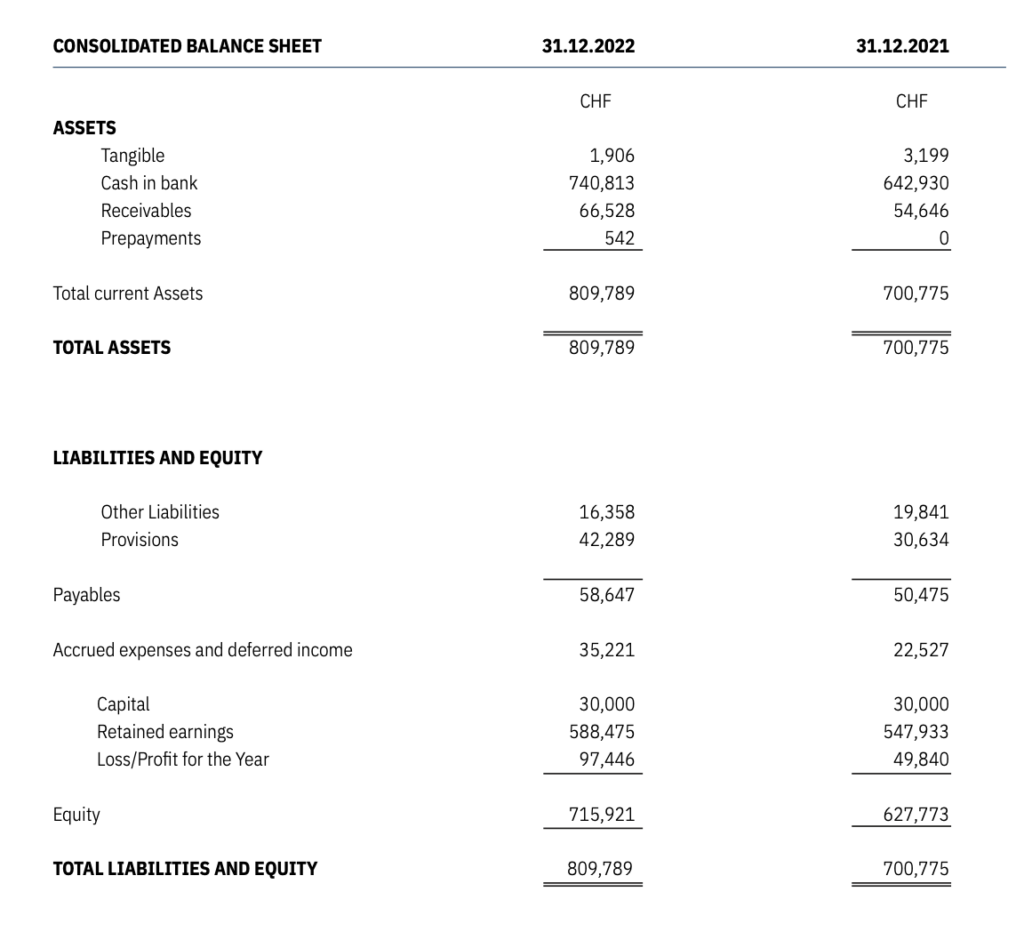
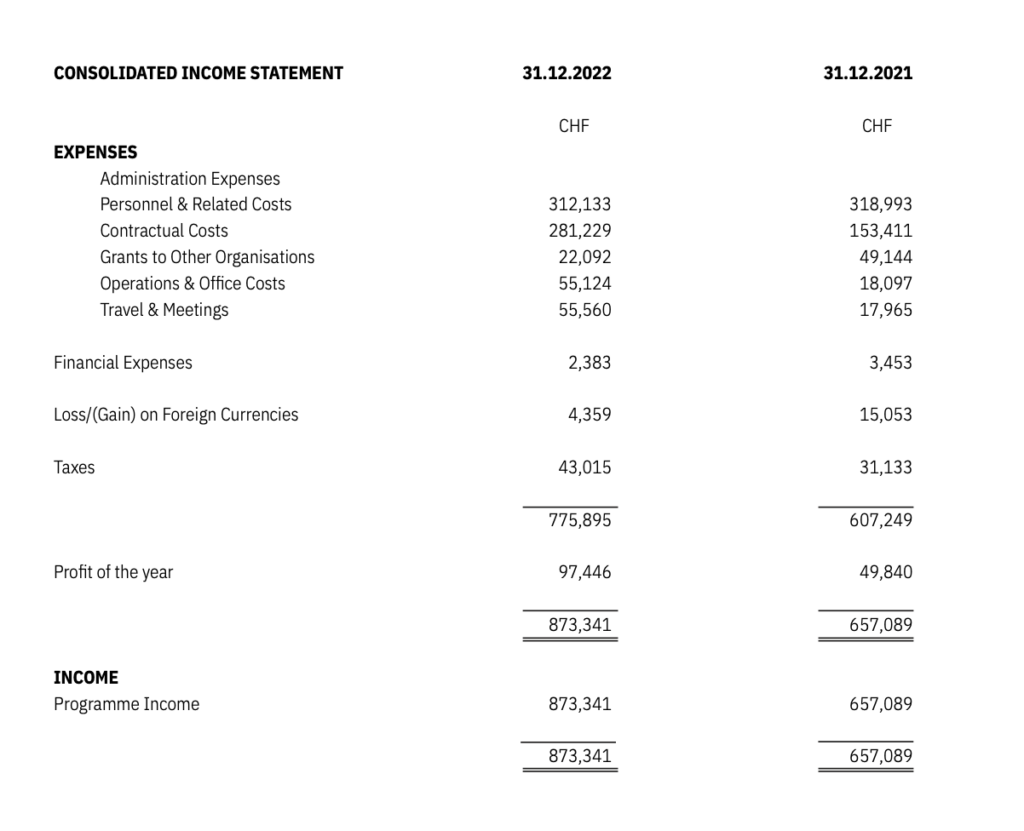
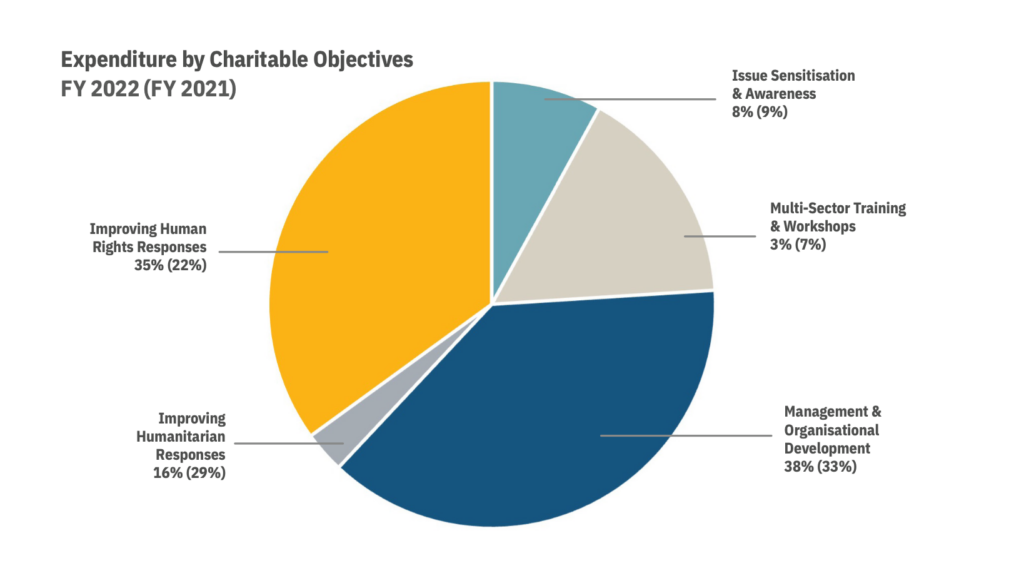
Board of Trustees and Board of Advisors
Board of Trustees in Liechtenstein
- Barbara Pirto – Treasurer
- Benyam Dawit Mezmur – Trustee
- Joachim Theis – Chair
- Philipp Wanger – Company Secretary
Board of Trustees in England and Wales
- Keith Burnet – Chair
- Sahar Khalil – Trustee
- Professor Kaveh Shakib – Trustee
Board of Advisors
- Aryeh Neier – Open Society Foundation
- Gary Barker – Equimundo Center for Masculinities and Social Justice
- H.E. Mr Christian Wenaweser – Permanent Representative of the Principality of Liechtenstein to the UN
- Lama Fakih – Human Rights Watch
- Lara Stemple – UCLA Law
- Nelly Staderini – Médecins Sans Frontières
- Professor Manfred Nowak – The University of Vienna
[1] Other co-sponsors included the Ludwig Boltzmann Institute of Fundamental and Human Rights, and the Permanent Missions of Austria and Liechtenstein to the UN in New York.
[2] Truth Commission, Final Report, Resistir no es aguantar. Violencias y daños contra los pueblos étnicos de Colombia, August 2022, (Spanish only), https://www.comisiondelaverdad.co/resistir-no-es-aguantar
[3] Red de Mujures is a national network of women victims of sexual violence and human rights defenders, and a founding member of the Global Network of Victims and Survivors to End Sexual Violence (SEMA). The Focal Groups (one representing male victims/survivors who identify as heterosexual and the second representing those who identify with diverse sexual orientation) are supported Red de Mujures and by the gender and differential approach group of the SJP’s Unit of Investigation and Accusation (UIA).
[4] Bangui is the capital of CAR, Bria is the capital of Haute-Kotto prefecture in the centre of CAR, and Zemio is a “sous-prefecture” town of Haut-Mbomou prefecture in the south-east of the country.

